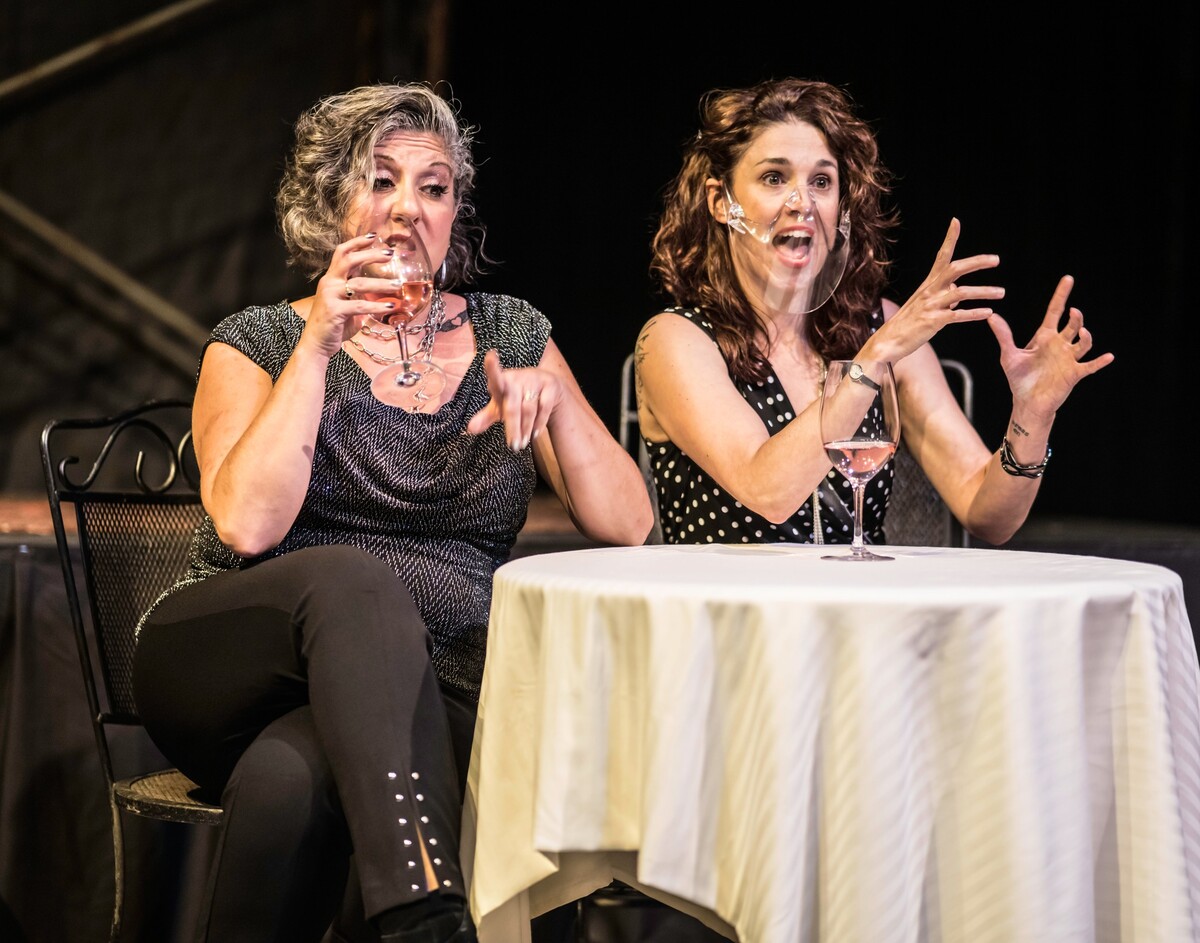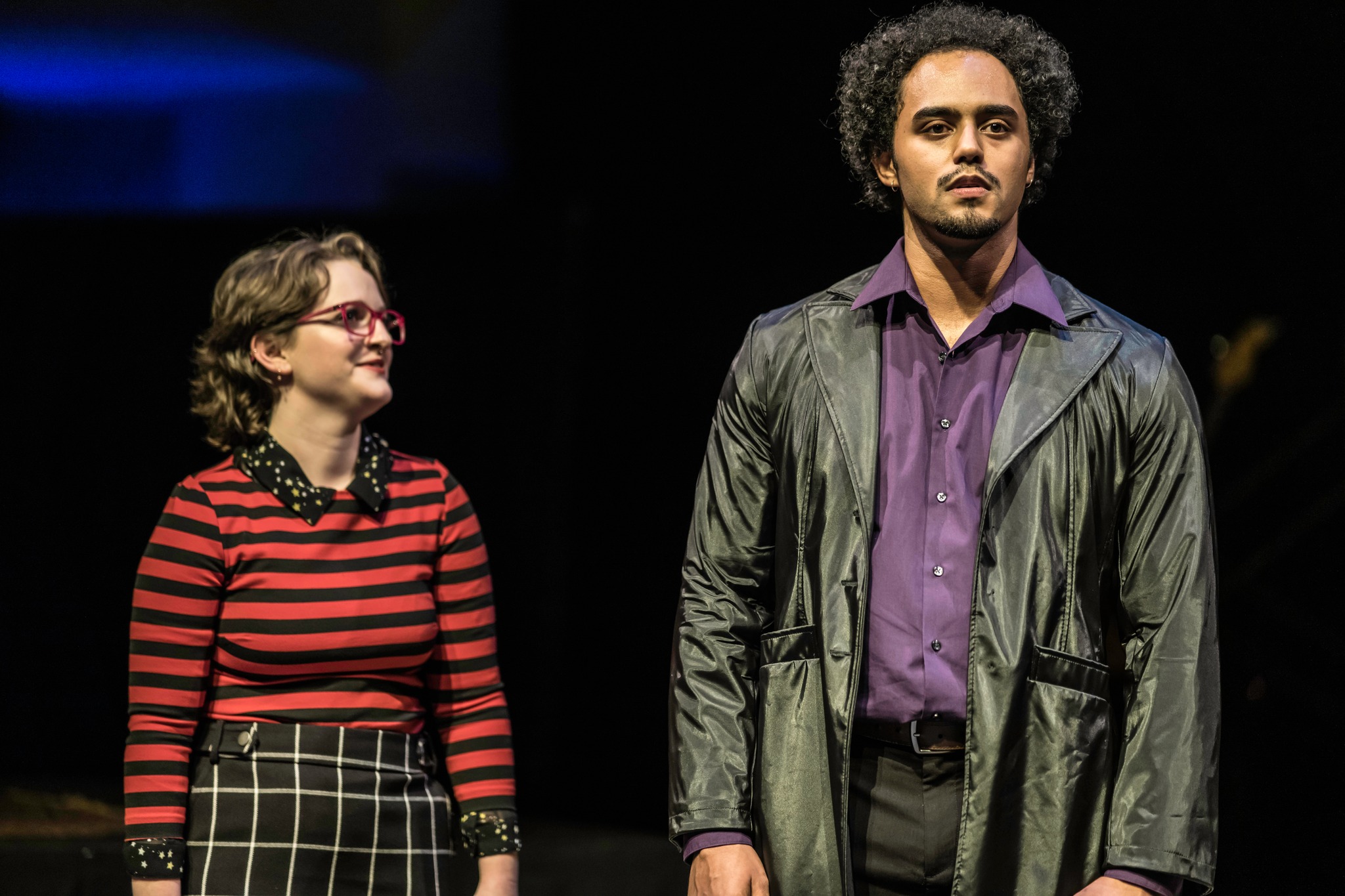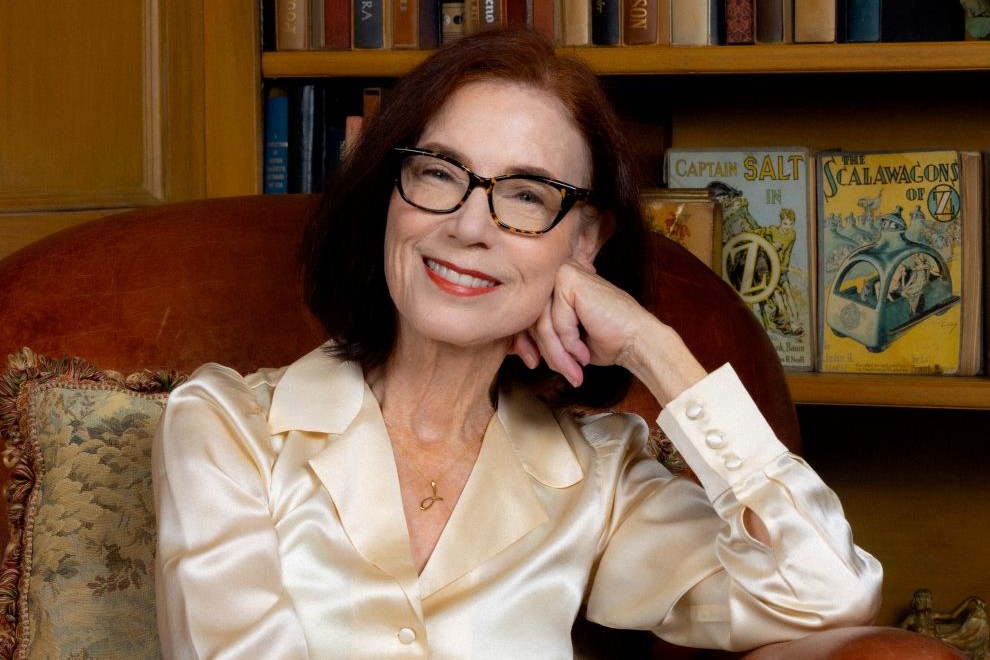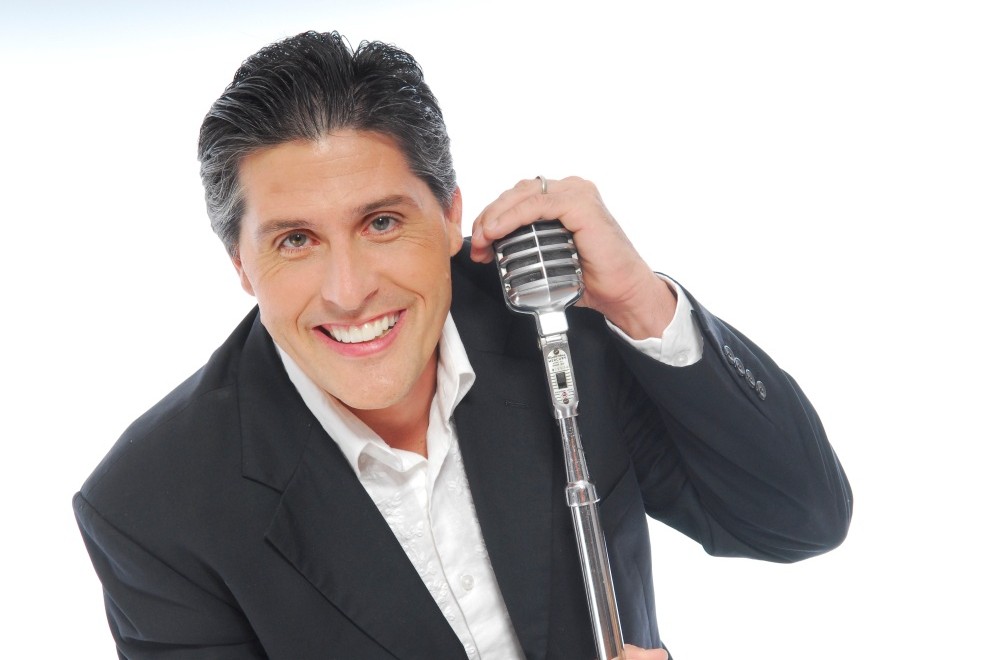Reviewed by Mara Guyer
All’s Well That Ends Well is one of those Shakespeare plays you might only hear about on Jeopardy! or at a trivia night. It’s not frequently taught or performed, and its ambiguous morality and inconsistent tone make it difficult to approach the play exactly as written.
Good thing Richmond Shakespeare – previously Quill Theatre – doesn’t go by the book. Their funny, thoughtful production of All’s Well embraces the play’s oddities and explores its difficult themes without overexplaining or offering moral prescriptions. Directors Jeffrey Cole and James Ricks cleverly reimagine key scenes through a modern lens and guide the audience into making surprising connections between the source material and contemporary life.

All’s Well follows the complicated union between Helena (Claire Bronchick) and Bertram (Trevor Lawson), the daughter of a doctor and a French nobleman, respectively. It’s a story full of contradictions. Despite the advantages of Bertram’s social status and gender, he is powerless when he is forced to marry Helena. He flees to Italy and challenges her with a series of seemingly impossible tasks to secure his return. Helena is capable and well-regarded by others in the story, though she is responsible for some of the play’s most unsavory moments as she attempts to finally win his love.
Richmond Shakespeare’s production doesn’t shy away from its characters’ uncomfortable choices. Bronchick plays a complex Helena who is simultaneously compassionate and selfish, serious and silly. Lawson’s scowl is perfect, conveying Bertram’s petulance as well as his panic. David Janosik is also excellent as Parolles, Bertram’s mentor whose confident swagger gives way to shame when he is disgraced in the second act. Lauren Leinhaas-Cook shines as Bertram’s mother, delivering a grounded performance that balances the overall absurdity of the text.
The set design is simple but effective, with two raised platforms and a small stage for the fantastic three-piece band. Visibility is an important theme in All’s Well – the power that characters wield when they can see or choose to remain unseen – and the structure serves those thematic moments well. Throughout the production, several characters also join the band to perform punk and new wave songs from the 1970s and 80s that connect lyrically to their individual circumstances (think “One Way or Another” by Blondie). It’s a fun and irreverent approach that functions like a soliloquy, punctuating significant emotional moments for individual characters and modernizing the Shakespearean relationship dynamics – like they’re working out their feelings at karaoke.

One of the production’s greatest strengths is its creative use of modern elements. When the King of France (Christopher Dunn) instructs Helena to choose her own husband from members of the court, the scene transforms into a high-energy dating show with eligible bachelors forming a panel onstage. Sara Collazo, Kylee Marquez-Downie, and Nicole Morris-Anastasi are hilarious as the Real Housewives-style gossips that Helena encounters while visiting Italy – and the reference is instantly recognizable thanks to Laura Vitale’s costuming and suddenly-appearing restaurant patio seating. The allusions are very funny. They are also very helpful, providing context when new characters are introduced and hinting at relationships between Shakespeare’s text and contemporary attitudes about romance and culture.
Performed in two acts with an intermission, All’s Well That Ends Well is an engaging new spin on one of Shakespeare’s least popular works. It doesn’t ignore the source material’s flaws, but instead offers a funny and inventive modern framework for interpreting the play.
All’s Well That Ends Well is showing at Gottwald Playhouse at Dominion Energy Center through November 13 and is recommended for ages fourteen and up. For showtimes and tickets, go here.
Feature photo: Helena (Claire Bronchick) and Bertram (Trevor Lawson)





